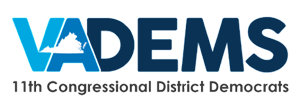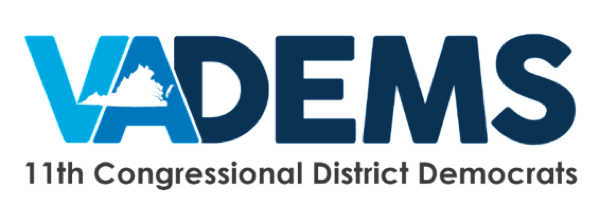On June 10, Congressman Gerry Connolly introduced legislation, the Oil Pollution Environmental Review Act, that will force oil companies like BP to comply with a full environmental review before they drill offshore. The Connolly bill ensures that oil companies will never again receive special treatment when they want to drill off our coasts, and that oil companies who drill offshore cannot cut corners.
Connolly’s opponent, Keith Fimian, subscribes to the Sarah Palin philosophy of “Drill, Baby, Drill” and “Drill here, Drill now.” He has a long record of supporting offshore drilling and believes that business, including Big Oil, should be allowed to self-regulate. And in the wake of the environmental calamity in the Gulf, he has not changed his reckless stance.
Watch the video to learn more.
The horrific images of the oil spill in the Gulf of Mexico serve as a grave reminder of what can happen when oil companies are allowed to drill offshore with lax oversight and no environmental protections. This spill is the greatest environmental catastrophe in our nation’s history, and the worst part is that it could have been prevented.
It is important that we look back and analyze the mistakes that allowed this disaster to happen. But it is even more important that as we work to clean up this spill, we look to the future and take the necessary actions to make sure that this kind of thing can never happen again.
In 2005, the Republican Congress, led by Rep. Joe Barton (R-TX), relaxed the regulations on offshore drilling, allowing special exemptions for offshore rigs like Deepwater Horizon. This bill will end the special exemptions that allowed BP’s Deepwater Horizon Rig to be built and operated without real oversight. Keith Fimian believes companies like BP should be allowed to police themselves. But that kind of lax approach led to the disaster in the Gulf. Let’s stand with Gerry. Sign on as a citizen co-sponsor to help prevent future oil spills!
Please join Congressman Connolly and help prevent the next oil spill. You can send a message by becoming a citizen co-sponsor of his bill. Click here and tell Big Oil, “Never Again.”
Here is more background below, and some thoughts from Gerry about how the spill was preventable.
- BP Oil Spill in Gulf was Preventable
- Connolly Bill Would Repeal Bush-era Loopholes that Allowed BP to Operate Recklessly
BP Oil Spill in Gulf was Preventable
By Congressman Gerry Connolly
While the BP oil spill continues to spew tens of millions of gallons of oil into the Gulf of Mexico, it is important to recognize that this spill could have been minimized or even prevented.
As the best minds in the oil industry, academia, and the federal government search for ways to stop the worst environmental catastrophe in our nation’s history, we must look at the factors which allowed it to happen and then make sure it can never happen again.
In 1969, after an oil well spilled more than 200,000 gallons of crude oil onto the California coast near Santa Barbara and the Cuyahoga River in Cleveland caught fire, Congress passed a law, known as the National Environmental Policy Act (NEPA), requiring that environmental impact statements and assessments be conducted on projects that had the potential to create environmental damage.
The law was designed to prevent private companies, as well as government entities, from cutting corners which could create serious environmental consequences on federal lands, including the Outer Continental Shelf off our coast.
Unfortunately, in 2005 the Bush administration and the Republican Congress passed legislation creating loopholes in the law that allowed “categorical exclusions” for projects with minimal risk to the environment and required the Secretary of the Interior to approve oil and gas exploration plans on the Outer Continental Shelf (OCS) within 30 days of their submission to the federal government.
It was this “categorical exclusion” provision granted by the U.S. Minerals Management Service that allowed BP’s Deepwater Horizon rig in the Gulf to begin oil exploration without any analysis or assessments of the potential environmental impacts required by NEPA under the premise that the rig could never leak more than 4,600 barrels of oil into the Gulf. That clearly was a false assumption.
To date, somewhere between 20 million and 70 million barrels of oil have spilled into the Gulf, closing America’s largest fishery, jeopardizing tourism, and wreaking havoc with the region’s entire economy. Already the BP spill covers an area of the Gulf equal to the size of the state of Kansas or, to put it another way, it would cover a land area stretching from Northern Virginia to New York City.
Consider that the Rail to Dulles project, a public project right here in Northern Virginia, had to go through an extensive and thorough two-year environmental review before a single shovel of dirt could be turned to begin construction. Yet BP’s privately-owned oil rig in the Gulf was exempted from the same process, even though there was a strong potential for catastrophic environmental consequences.
In Canada, deepwater drilling rigs are required to have contingency plans for offshore drilling, including the capability to drill relief wells soon after the primary wells are constructed. If BP’s Deepwater Horizon rig had predrilled such relief wells, it would have enabled the closing off of the leak weeks ago, but, thanks to the loopholes in U.S. regulations, they weren’t required to do so.
That is all going to change if I succeed with legislation I have introduced to repeal the Bush-era loopholes that allowed BP to begin oil exploration on the Deepwater Horizon rig in the Gulf without any analysis of the potential environmental impacts. My bill, H.R. 5506, will mandate a full environmental review of every aspect of all offshore drilling activity off the U.S. coast.
The bill I introduced, knows as the Oil Pollution Environmental Review Act, would repeal the legislation passed in 2005 that relaxed environmental impact regulations on Big Oil. It would also end the provision requiring the Secretary of the Interior to approve oil and gas exploration plans within 30 days, and mandate that all exploration plans, development production plans, and lease sales on the OCS be subject to detailed and thorough environmental analysis.
We have seen the consequences of lax regulation. It is a disaster of epic proportions and like the rest of the nation, I pray that the leak, located a mile below the sea, can and will be capped soon. If I am successful with my legislation in Congress, never again will Big Oil have the opportunity or the ability to circumvent strict and necessary environmental reviews.
Connolly Bill Would Repeal Bush-era Loopholes that Allowed BP to Operate Recklessly
WASHINGTON – Congressman Gerry Connolly of Virginia has authored legislation to repeal Bush-era loopholes that allowed BP to begin oil exploration on the Deepwater Horizon rig in the Gulf without any analysis of the potential environmental impacts. Connolly’s bill will mandate a full environmental review of every aspect of all offshore drilling activity off the U.S. coast.
“Northern Virginia’s Rail to Dulles project, a public project, had to go through an extensive and thorough two-year environmental review, yet a privately-owned oil rig in the Gulf was exempted from the same process, even though, as we have seen, the environmental consequences were catastrophic to the economy and fragile ecosystem of the Gulf states,” Connolly said.
“The BP oil spill in the Gulf was preventable,” Connolly said. “Unfortunately, between 2003 and 2007 the Minerals Management Service under the previous administration ‘categorically excluded’ the Deepwater Horizon rig from environmental impact statements and assessments required under the National Environmental Policy Act of 1969 on the premise that it could never leak more than 4,600 barrels of oil into the Gulf.”
Connolly’s bill – the Oil Pollution Environmental Review Act, H.R. 5506 – would repeal legislation passed in 2005 by the Republican Congress that relaxed regulations and required the Secretary of the Interior to approve oil and gas exploration plans on the Outer Continental Shelf (OCS) within 30 days of their submission to the federal government. It would also mandate that all exploration plans, development production plans, and lease sales on the OCS be subject to detailed and through environmental analysis.
“Never again will Big Oil have the ability to circumvent strict environmental reviews, under my bill,” Connolly said. “We have seen the consequences of lax regulation in the form of somewhere between 20 million and 70 million barrels of oil spilling into the Gulf, closing America’s largest fishery, jeopardizing tourism, and wreaking havoc with the region’s entire economy.”
Connolly’s bill is cosponsored by Congressman Jared Polis of Colorado, Rush Holt of New Jersey, and Raul Grijalva of Arizona.

